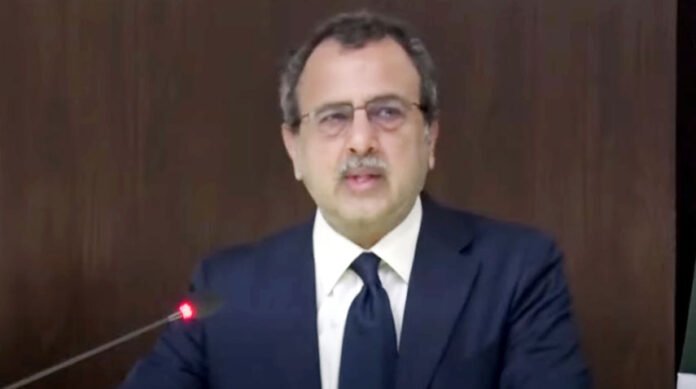ISLAMABAD, Jan 19 (APP): Uninterrupted power supply at an affordable rate is considered crucial for the development of the industrial, agricultural and domestic sectors of any country.
The incumbent government since its inception through innovative policies, substantial investments, and major structural reforms in the power sector, significant progress has been made towards ensuring energy sustainability by reducing electricity costs for economic growth.
Rising fuel prices and new energy situation after the Ukraine war also necessitated in Pakistan to tap its indigenous resources like hydel, solar, wind and Thar coal to provide maximum relief to the people particularly power consumers.
Minister for Power Division Sardar Awais Ahmed Khan Leghari said the power sector has witnessed tariff reductions as the average price of electricity has decreased to Rs44.04 per unit from Rs48.70 per unit in June 2024, marking a reduction of Rs4.66.
Similarly, he said the industrial tariff had also significantly dropped to Rs 47.17 per unit from Rs 58.50 in June 2024, reflecting a reduction of Rs 11.33 per unit.
Mounting debt load, rising power prices and an astonishing Rs 1,411,669 million capacity payment to Independent Power Producers (IPPs) during fiscals 2022-23 and 2023-24, the government has come up with solutions to stem out the menace and lessen burden on consumers and national kitty.
The government set up a Task Force to implement structural reforms with Minister for Power Sardar Awais Ahmad Khan Leghari as its Chairman, PM’s Special Assistant on power Muhammad Ali as co-Chairman and Lt Gen Zafar Iqbal as National Coordinator also including in it representatives from various regulatory bodies.
Contracts with Saba, Lalpir, Atlas and Rousch having accumulative generation capacity of 2,463 Megawatt (MWs), set up under 1994 power policy were terminated through ‘mutual agreements.
The minister said that a savings of Rs1 trillion had been achieved in negotiations with IPPs. The government had terminated agreements with five IPPs, which would save Rs 411 billion (Rs7 billion annually). Total savings from the settlement of the accords with 8 bagasse-based IPPs amounted to Rs238.224 billion (Rs8.826 billion per year), he explained.
He said negotiation with 16 other IPPs is also underway and revised agreements with 16 IPPs would be finalized in the coming days which would help national savings of Rs 481 billion.
Regarding solarization of agricultural tube-wells in Balochistan, the minister said, “We are solarizing 27,000 tube wells at a cost of Rs55 billion, with a 70 percent federal government contribution.”
Awais said that this initiative would promote green energy and revolutionize the agricultural sector in Balochistan.
Responding to the government ‘Winter Bijli Sahulat Package’, Awais says, “this package introduces a special tariff of Rs26.07 per unit for households and industries”.
“Under the package, domestic consumers will benefit from savings between Rs11.42 and Rs26.00 per unit, while commercial consumers can expect savings of Rs13.46 to Rs22.71 per unit,” he explained.
He said that the industrial users would enjoy savings ranging from Rs5.72 to Rs15.05 per unit, and this initiative underscores our commitment to reducing electricity costs and supporting economic growth.
Regarding reforms in transmission system, the minister said the government was diligently working on upgrading the transmission sector including the bifurcation of the National Transmission and Despatch Company (NTDC) into three entities.
“These three entities will be the ‘National Grid Company of Pakistan’ being established for efficient and reliable transmission, the ’Energy Infrastructure Development and Management Company for project management, and the ’Independent System and Market Operator for a competitive and transparent electricity market,” he explained.
Additionally, the South-North transmission corridor was being developed through Public-Private-Partnership, with a Battery Energy Storage System (BESS) of 1000MWh planned for installation in the South for frequency regulation, he said.
Regarding power sector liberalization, the minister said the Independent System and Market Operator would allow consumers to purchase electricity from multiple suppliers.
He also revealed that the Indicative Generation Capacity Expansion Plan (IGCEP 2024-34) would be finalized soon, and emphasized that out of the 17,000MW to be added in the next 10 years, only 87MW was based on the least-cost principle. “A review of the IGCEP will ensure that energy is added to the system on a least-cost basis,” he added.
Awais Leghari said the government has a plan to introduce special tariffs for electric vehicles (EVs) under a forthcoming EV policy. “This EV policy will reduce dependency on imported fuels, lower greenhouse gas emissions, and improve air quality,” he said and added that it would also foster economic growth through job creation in local manufacturing and the development of charging infrastructure. The minister expressed the hope that the new EV policy would revolutionize Pakistan’s transport sector
Regarding the challenges faced by the power sector, including transmission constraints and poor recovery rates, which contribute to Rs 250 billion in losses caused by Discos’ inefficiencies, the minister was of the views, “Efforts to manage the Rs2.2 trillion circular debt burden are ongoing, focusing on reducing consumer electricity costs. We are also addressing the impact of dollar-denominated debt as the depreciation of the rupee has exacerbated it”.
He said that the circular debt costs were being shifted from electricity bills to the national debt to reduce the consumer burden. “We have eliminated Rs150 billion in cross-subsidies from the industrial sector, a step that has boosted industrial growth and job creation in Pakistan,” he explained.
About reforms in power distribution companies (DISCOs), Awais Leghari said the government was pursuing privatization and concession models for electricity distribution. Independent Boards of Directors have been appointed for DISCOs, he added.
APP/raz/taj (APP Feature Service)

